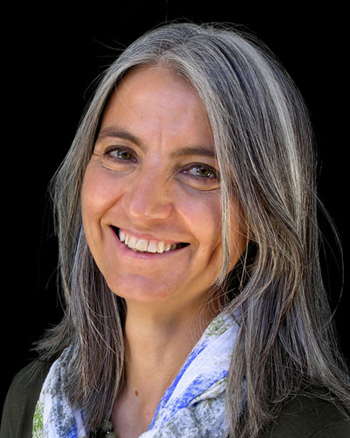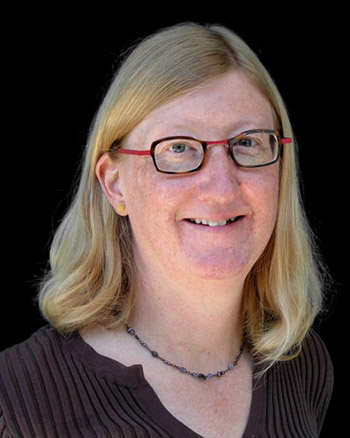Karen Ottemann and Fitnat Yildiz, both professors of microbiology and environmental toxicology at UC Santa Cruz, have been elected Fellows of the American Academy of Microbiology in recognition of excellence, originality, and leadership in the microbiological sciences.
The newly elected fellows will be honored at a ceremony June 2 during the annual meeting of the American Society for Microbiology in New Orleans.
Ottemann is chair of the Department of Microbiology and Environmental Toxicology at UC Santa Cruz. Her laboratory investigates the mechanisms used by bacterial pathogens to cause inflammation and cancer. Ottemann is particularly interested in the bacterium Helicobacter pylori, a pathogen that infects some 3 billion humans and can lead to serious disease, including ulcers and cancer. Her lab probes how chemotaxis (movement in response to chemical cues) aids bacterial infection. She also studies the function of the atypical proteins of H. pylori's chemotactic signal transduction system. Recent work by the lab on the role of chemotaxis in infection has determined that this bacterial process can specifically promote inflammation by a mechanism that is currently under active study. This finding suggests that blocking chemotaxis would ameliorate disease symptoms.
Yildiz is a leading authority on biofilms, microbial communities that grow on surfaces and are enclosed in a protective matrix. Her lab studies molecular mechanisms of biofilm formation and their consequences in the infection cycle of the cholera pathogen Vibrio cholerae, which causes periodic, seasonal outbreaks of disease in many parts of the world. Research in Yildiz's laboratory has identified components of the biofilm matrix and revealed their contribution to biofilm construction and stability. Her lab also identified the regulatory network that governs V. cholerae biofilm formation and showed how extracellular and intracellular signals are integrated into regulation of biofilm formation. Yildiz has expanded her research to identify small molecules that target biofilm formation for potential therapeutic use, and to determine the relevance of biofilm antigens as targets for the immune system and thus for potential cholera vaccines.
The American Academy of Microbiology is the honorific leadership group within the American Society for Microbiology, the world's oldest and largest life science organization. The mission of the academy is to recognize scientists for outstanding contributions to microbiology and provide microbiological expertise in the service of science and the public.




